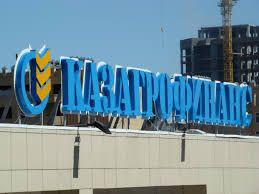KAF's Support Rating Floor of 'BB+' and '3' Support Rating have been withdrawn due to the change of criteria used by Fitch to rate the company.
The affirmation reflects KAF's first-time assessment under the Fitch's Government-Related Entities (GRE) Criteria. Fitch views KAF as an entity credit-linked to the Republic of Kazakhstan (BBB/Stable/F2), which is supported by indirect state ownership and control through JSC KazAgro National Managing Holding (KazAgro; BBB/Stable).
Fitch now rates the company using its GRE criteria to better reflect its policy role and links with the Kazakhstan sovereign. Fitch previously rated KAF using its Non-Bank Financial Institutions Rating Criteria.
KAF is fully indirectly owned by the state via JSC KazAgro, as one of its three subsidiaries. Fitch expects KAF to remain a state asset after its exclusion from the privatisation list due to its important mission of agricultural machinery-and-equipment renewal via subsidised leasing.
The state exercises strict control over KAF's activities through KazAgro, which sets the framework for debt and dividend policy, as well as appointing the company's board of directors. KazAgro approves management decisions and KAF's annual financial statements. The board of directors includes representatives of KazAgro with the aim of ensuring that KAF's operations are in line with those under the state's programmes.
KAF provides state funds to agricultural borrowers through participation in the state-subsidising programmes for agricultural leasing. For this purpose it receives subsidies from the state, which are then passed through to agricultural borrowers. Apart from the subsidies KAF has not received any other direct state support.
More than half of KAF's debt was composed of state-related funding at end-2019. This is represented by bonds issued in favor of KazAgro and loans from KazAgro, part of which was financed by funds from the National Fund of Republic of Kazakhstan. Though the proportion of state-related funding has gradually declined to 69% in 2019 from 87% in 2015 due to amortisation of state-related debt and the absence of new capital injections, Fitch expects state funding will continue to dominate over the medium-term. Management expects capital injections in 2021-2015, which Fitch believes could take a different form of subsidies.
Fitch assesses the socio-political implications of default as severe, because KAF would likely discontinue its operations, given its dependence on regular access to funding. This would have an adverse effect on the development of the agricultural sector and indirectly on employment and the livelihood of a significant part of the country's population. Agriculture is one of the strategic sectors for Kazakhstan's economy, which employs around 15% of the labour force while 40% of the population resides in rural areas.
Support of agriculture has been one of the strategic priorities for the state because of the sector's sizeable export capacity and social importance. Fitch believes that in the coronavirus pandemic the importance of the sector could further increase. Management estimates that the wear-and-tear of agricultural machinery and equipment in the country is currently 70%. This means that KAF plays a crucial role in the renewal and modernisation of agricultural equipment as a provider of leasing services to the sector. KAF is the only specialised company in agricultural leasing in Kazakhstan with a market share of around 90%. In the absence of the relevant substitutes its role in the development of the national agricultural sector is highly important.
As of end-2019 more than half of KAF's debt was state-originated, which alleviates the risk of default. Nearly 100% of the debt is currently in local currency, and management does not plan to return to foreign-currency debt. Despite KAF being a regular participant in the debt capital market, its market borrowing remains low relative to larger national GREs'. As KAF is indirectly owned by the state the materiality of its distress for investors would be lower, in Fitch's view, than of other large directly-owned GREs, which justifies our 'Moderate' assessment.
Photo source: picture from an open source
